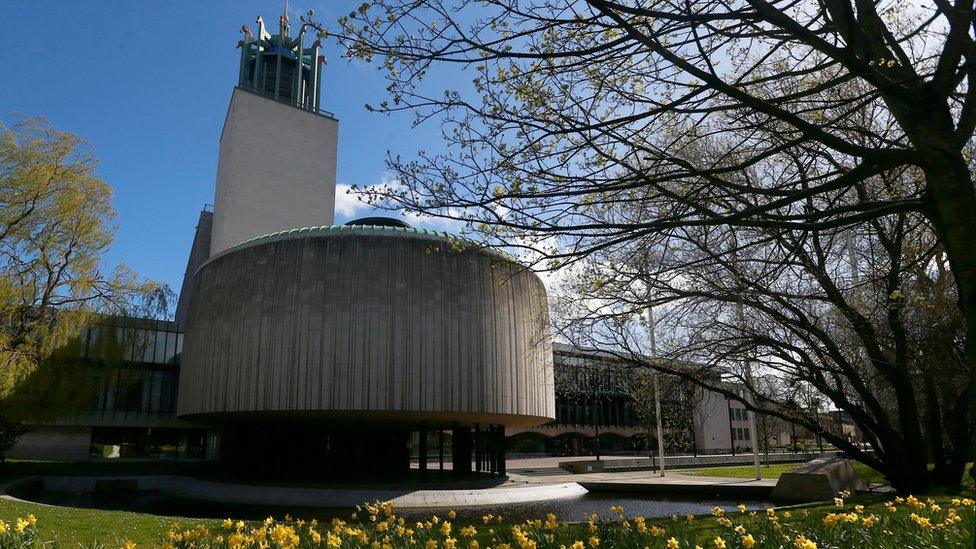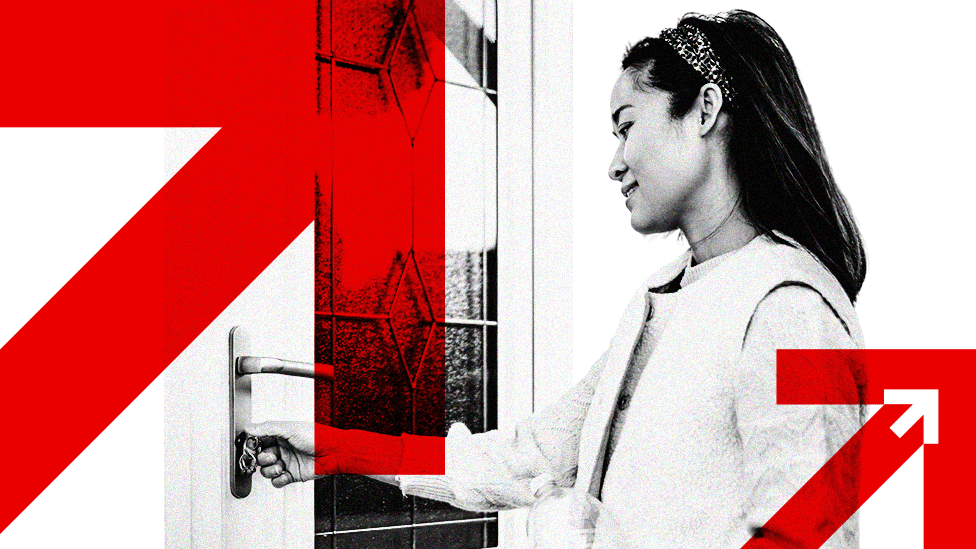Newcastle council tax hike and parking charges rise agreed
- Published
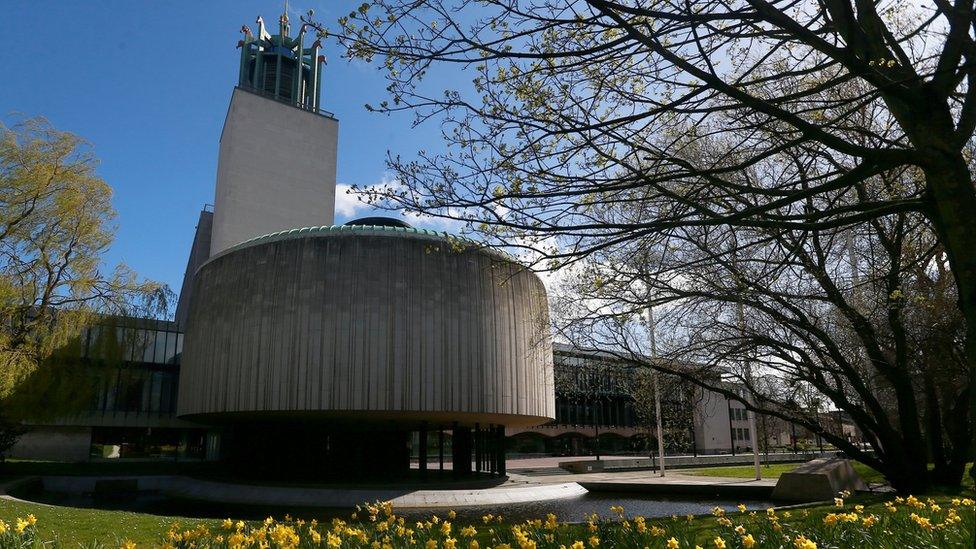
Councillors signed off a 3.99% rise in council tax at at meeting on Wednesday
Newcastle City Council has signed off £23m of budget cuts and a 4% hike in council tax charges.
The Labour-led authority will also axe more than 50 jobs as part of financial plans agreed on Wednesday.
Parking charges will rise and social services spending cut by £6m, with calls to reinstate free parking for disabled blue badge holders rejected.
Councillor Paul Frew blamed a "litany of government failures" for the circumstances facing the authority.
From April, council tax will rise by 3.99% - it was increased by 2.99% for 2022/23.
Mr Frew said the hike, which includes a 2% adult social care precept, was "entirely necessary" to cover rising costs in care services.
It will cost those living in a typical Band A property an extra 94p a week and £1.42 a week for a Band D property, external.
The council has had its annual budget slashed by £341m since 2010, the Local Democracy Reporting Service said.
The new budget includes:
Cutting £3.24m from adult social care service and £3.3m from the children, education and skills budget
Increased fees for parking in council-run car parks
Reducing funding to homelessness services by £185,000
Saving £1.25m from "non-essential expenditure" in areas including overtime pay and taxi fares
A "review" of the Bikeability cycling training in schools
A total of 54 posts will be lost, although 40 are vacant.
Lib Dem opposition leader Colin Ferguson agreed that successive Conservative governments had been a "disaster" for Newcastle, but added that the council cannot rely on the funding sources of the past.
Council leader Nick Kemp called on ministers to reform the council tax system so that income is spread out more equally.
He argued that not putting council tax up to 5% - the maximum allowed without a local vote - was a "recognition of the challenges residents are facing" in a cost of living crisis.
Work and Pensions Secretary Mel Stride has said the government had put "about £60bn worth of funding for the current year into local authorities".
In February, he said it was up to local authorities "to try and get that balance between the pressure they're putting on local tax payers and making sure they're able to continue to provide those services".

Follow BBC North East & Cumbria on Twitter, external, Facebook, external and Instagram, external. Send your story ideas to northeastandcumbria@bbc.co.uk, external.
Related topics
- Published14 February 2023
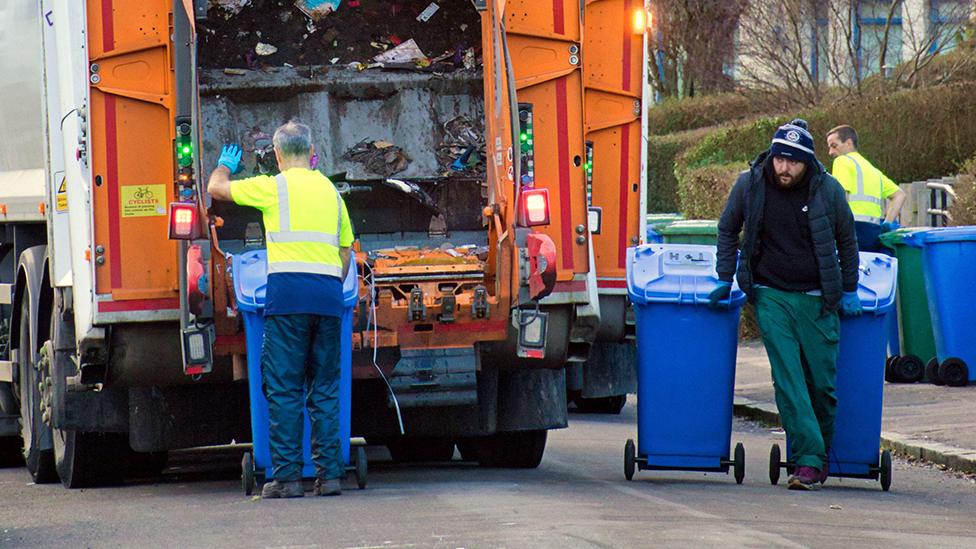
- Published9 January 2023
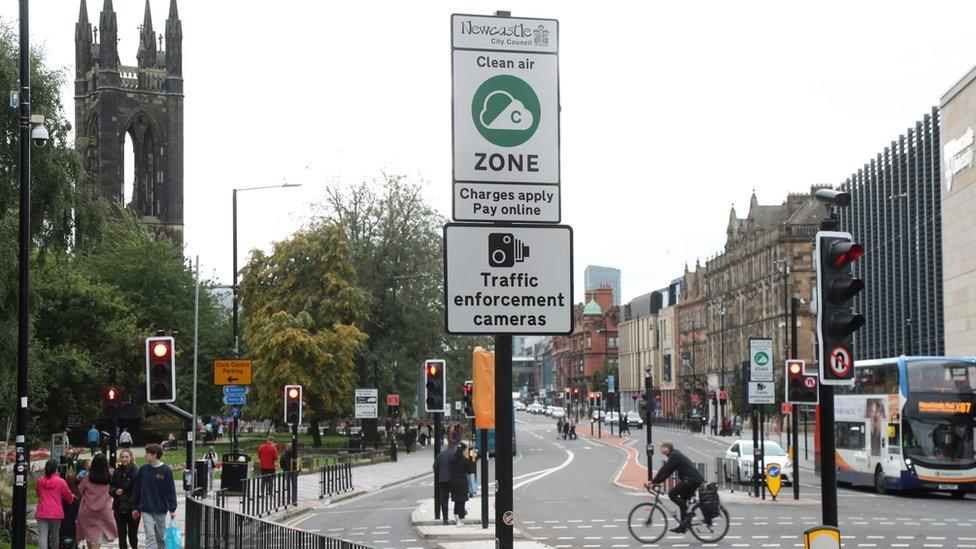
- Published21 February 2023

- Published12 November 2022
